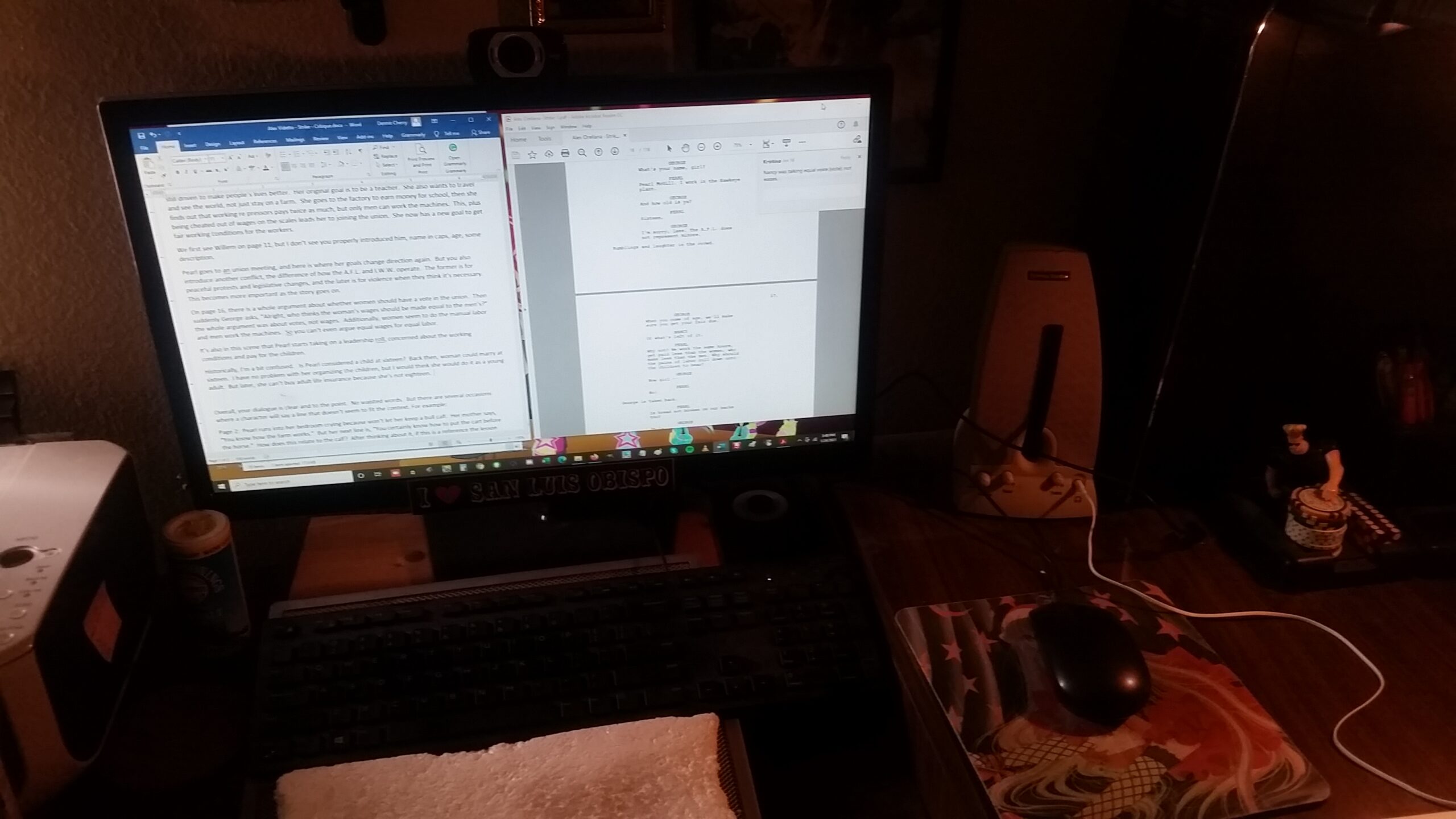The Good, the Bad and the Rewrites.

I have mentioned many times that the Critique groups are the most valuable part of my GLAWS membership. The education you get from Special Speaker Events and Writer Conferences are important to your growth as a writer, but eventually you have to apply what you’ve learned to your work. You also need a means of gauging if you’re improving to a professional level. That’s where critique groups come in.
In the GLAWS Critique Group Guidelines, it states that when critiquing, you should start with something positive. In all the stories I’ve critiqued, there is always something positive. Even if a person’s writing skills aren’t the best, they may have a great concept, or have interesting characters, or have strong character development. There’s always something to be found.
Next, you deal with the problem areas. And this may vary from reader to reader. What one person considers a problem, another may not. Your job as a reader is to give the best feedback you can. If something bothers you, even in the slightest, say so. The job of the writer is to sift through the feedback and determine what works best to improve their story.
In my experience as a writer, I find that if a lot of readers point out an issue, it’s probably a problem to consider fixing. If it’s only one or two people, maybe they just didn’t get what you were trying to say. Sometimes you want to hold back information from the reader, and later, when you explain something those readers will go, “Oh, I get it now.”
Occasionally you’ll get that one person that catches a problem no one else did. That can be gold.
When pointing out problems, it is important to be considerate. Most writers want to know if there is a problem so they can improve, but no one wants to hear, “you’re an idiot!” I’ve heard horror stories of other critique groups where professional jealously runs rampant and all they do is tear down each other’s stories. That is not productive. Be careful in selecting a group that fits you. Find people that write in your genre, that know the tropes, that “get it”. People that take their critiquing seriously, professionally and constructively.
As a writer, don’t take criticism personally. This is a problem a lot of new writers have. Writing is putting down your personal thoughts, beliefs, ideals, but the readers are critiquing your WORK, not YOU. Some writers have trouble making that distinction. If a reader is criticizing you personally, then it’s up to the critique group leader to step in and correct that, either by taking them aside, or excluding them from the group if necessary.
Have the right attitude when hearing critiques. Remember that most readers are trying to help you improve your craft, just as you are trying to help them when you critique their work. There is no room for jealously or envy in a critique group. Remember, even if someone appears more talented or successful than you, that does not affect your ability to succeed. That is up to you.
Dennis Amador Cherry
45th article completed.
First Steampunk novel: 71,915 words, First Draft DONE – Chapter 7 – 9 out to critique group.
First Steampunk screenplay: Updated with notes from the novelization.
Second Steampunk screenplay: 114 pages
Second Steampunk novel: 0 words.
When I was in Quattro University, an entrepreneurial college, one of our instructors, Sense Ron, would say, there is no failure, only feedback.
Leave a Reply